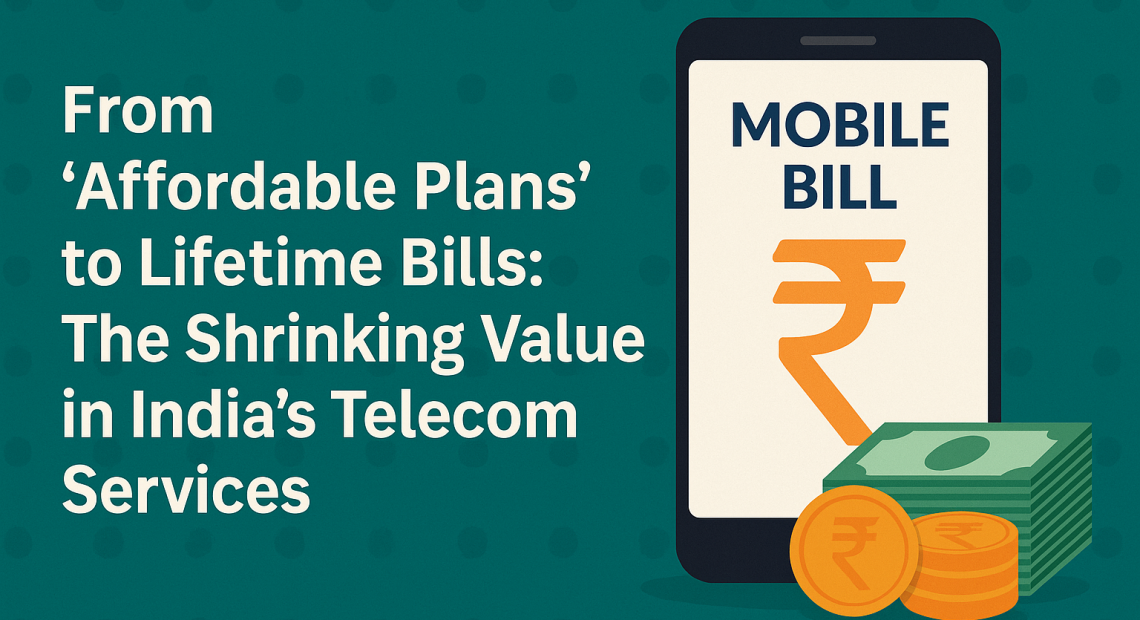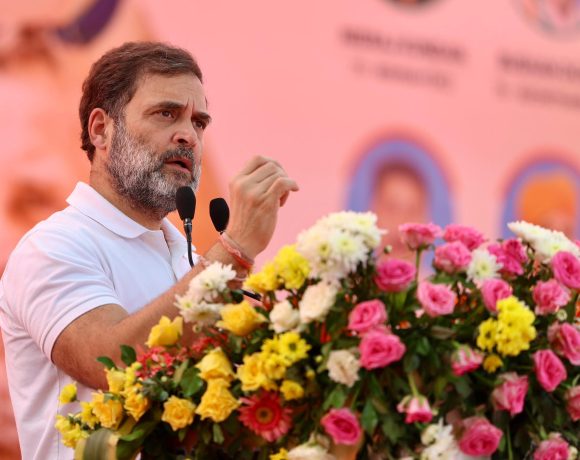
From Affordable Plans to Lifetime Bills: How TRAI Sold Out India’s Poor to Telecom Giants
India loves to market itself as the world’s cheapest data destination. And yes, if you’re a TikTok clone addict or binge-watching web series on a budget smartphone, that’s a true blessing. But there’s a cruel irony hidden in this brag: staying connected without data — just to make or receive calls — has never been more expensive. From “affordable plans for all” to “lifetime bills for everyone,” the story of Indian telecom has turned into a monthly tax on the poor, with TRAI playing the role of benevolent cheerleader.
Back in the pre-2017 world, mobile connectivity was actually affordable. Lifetime validity was a reality: a one-time recharge of ₹99 or ₹200 could guarantee you incoming calls for years, if not forever. Small talktime packs of ₹10 or ₹20 kept rural households, elderly users, and daily-wage workers connected at negligible cost. India could boast of “Digital India” without crushing the very people it claimed to empower. For once, it felt like policy and pocket aligned.
Then came 2016 and the great disruption: Reliance Jio. Free voice calls bundled with gigabytes of data sounded revolutionary, and in many ways, it was. But bundled plans quickly killed affordability for voice-only users. Airtel, Vi, BSNL — none wanted to be left behind in the race. The casualty? Those old lifetime validity and small-recharge options. Suddenly, a SIM card could not survive without a monthly recharge. The floor cost to simply remain reachable shot up to ₹125–₹155. Data became cheaper than a cup of tea, but incoming calls quietly went premium.
TRAI, of course, responded — not by enforcing affordability, but by writing fairy tales. Rules appeared on paper: the ₹20 balance auto-deduction rule, where operators would keep your SIM alive by nibbling away at a token balance. Then came the grand promise of ₹10 recharges and 365-day validity packs, unveiled in late 2024 as if they were gifts of divine benevolence. Operators were ordered to launch “voice + SMS only” vouchers to protect non-internet users. All great ideas, except for one small detail: finding these plans in real life is like finding unicorns in Connaught Place. TRAI regulates press releases more effectively than it regulates operators.
On the ground, the reality is brutal. The cheapest validity plans remain in the ₹125–₹155 bracket. The so-called “voice-only” plans sneak in token data, making sure no one escapes the bundling trap. Operators market annual packs at ₹1,849 for 365 days — great on paper, but crushing for low-income users who can’t afford big upfront costs. For millions of Indians, the “minimum cost of connectivity” has risen from the ₹99 entry point of earlier years to a new normal of ₹125+ per month. Affordability didn’t just decline — it was deliberately buried.
And then there’s the scam TRAI refuses to touch: the “monthly” plan that lasts only 28 days. Recharging 13 times a year instead of 12 may be the telecom sector’s most elegant con. Imagine a grocery store selling “monthly rations” that last only 24 days — there would be public outrage. But in telecom, it’s business as usual, with the regulator conveniently looking the other way. In India, even the definition of a month bends before telecom operators.
Who wins in this grand arrangement? Urban data-hungry middle classes and telecom giants padding their ARPU growth charts. Who loses? The elderly villager who just wants to hear from his children, the domestic worker who only needs incoming calls, the farmer who relies on SMS alerts. Digital India works best if you can afford a smartphone, data packs, and coffee at the airport lounge. But if you just want to remain reachable, congratulations: welcome to the world of lifetime bills.
TRAI’s role in this saga is shameful. Instead of standing guard for consumer rights, it has perfected the art of passing resolutions that resolve nothing. Operators raise the minimum cost of connectivity, consumers complain of unaffordability, activists flag misleading “monthly” packs — and TRAI issues clarifications that go nowhere. Rules without enforcement are just bedtime stories for the telecom sector.
India once promised affordable connectivity for all. What it has delivered is a system where the poor pay a higher relative price for basic access than the rich do for unlimited data. That’s not just bad regulation — it’s regulatory capture dressed as policy. From affordable plans to lifetime bills, the telecom journey has been a masterclass in how to turn a public utility into a private cash machine.
Maybe one day, TRAI will regulate telecom the way it regulates its press conferences: with speed, efficiency, and full coverage. Until then, the poor will keep paying for the privilege of being reachable in the world’s cheapest data country.


















